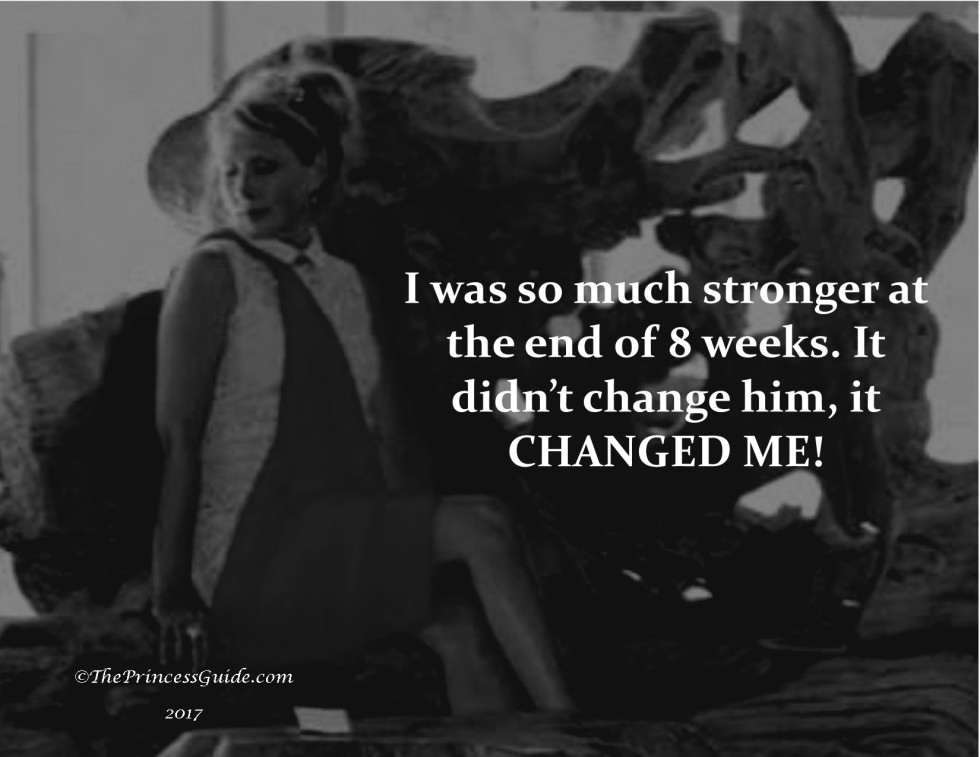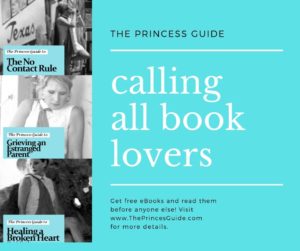I began singing in public in church when I was 2-and-a-half. I sang on television for the first time when I was 9. It was a live broadcast in the Dallas market, and wouldn’t you know that there would have to be an audio problem when the 9-year-old got up to sing!
I did what seemed logical … I waited until I could hear the music again, then started singing where it picked up. Before they sorted it out in the control booth, I just stood there under the blazing lights and glaring cameras pointed straight at me, not to mention a studio full of audience members staring at me. I didn’t throw a Toddlers and Tiaras fit and storm off the set. I didn’t burst into tears in front of the viewers in the number 7 market (at the time). I stood there and waited.
I think I had a deep inner knowing even at that early age that the show must go on and that I had to adjust as quickly as I could to accommodate myself to any problem. The same is true in life. We have ZERO control over other people or outside forces. Some of the time, we have zero control over what happens to us … In such a case, all we can control is how we choose to react to the problem. Do we throw a tantrum on live TV and storm off the set, or do we stand there until we hear the music and begin singing wherever it picks up? At age 9, I chose to do the latter, and I’ve spent the majority of my life doing the same.

Now, I’m not saying that you’ll never have moments of meltdown. Any time we experience a great loss or significant change, we have to allow our minds time to realize what happened, to process the event, to heal emotionally and come up with a new plan. Depending on the severity of the situation. that could take some time. It took me seconds when I was 9 singing on live TV, but as a 42-year-old dealing with a major relationship issue it took me three years to get through the grieving process then start to heal and feel like myself again.
It takes time to figure out what you want your life to look like once you have a major life change. It takes time to remember your worth and value, and then to realize that there must be someone out there who will treat you with the love and respect that you deserve and will give in return, or the right life/career situation that will benefit you rather than break you down.
What happens when we refuse to be flexible and adjust? Bitterness sets in and totally changes our lives … for the worse. It can rob us of our peace, joy and happiness. It can also cause us to do something just to have something to do instead of waiting for the right timing to sing our beautiful song.
Here’s what I had to say about it in my book The Princess Guide to Healing a Broken Heart and how it relates to relationships:
Joy/happiness are attraction magnets—they attract the right people, opportunities, and circumstances into your life, just like bitterness and negativity repel them. The people I enjoy being around most are happy/joyous people who may not be where they want to be in life, but they are grateful for where they are and are working on plans they have devised to go further and do more. Being happy/joyous while single is alright too—It doesn’t mean you’ll be alone forever, it just means that you are fine with it for now and are in no hurry to bring the wrong person into your life to fill the space.
I haven’t thought a lot about that first time singing on television, but as I have been writing this post, it really jumped out at me that I waited … I waited until the music started playing again. I stood there in that very uncomfortable space with all eyes in Dallas on me and I waited. I beat up on myself a lot for being impatient. I feel like I’ve spent most of my existence on this planet waiting for my life to start and for things to happen for me that seem so easy for everyone else. I get frustrated wondering, “When is it finally going to be my turn?!? When are things going to change in my favor?”
Maybe I’m the only one who’s ever felt this way … I’m just being honest and real.
My trusted advisor has been telling me lately that I need to celebrate the little victories. The truth is, I’ve been looking for (and needing) such big victories that the little ones just get ignored by me. But I’ve been working on paying closer attention and giving credit where it is due. So, I have to celebrate the fact that in some areas of my life, I have been patient and waited just like I did on that TV set when I was 9.
During this process, I’ve learned that there’s two types of waiting: active waiting and passive waiting. Passive waiting is when you just sit there and let life pass you by. Active waiting is preparing for the next steps (or what you think or hope are the next steps) while you are waiting.
- Are you hoping to move to a new home or location?
- Start packing up the stuff you aren’t using on a regular basis.
- Begin looking at available places to live in that area.
- Are you wanting a permanent relationship in your life?
- Start fixing yourself up on a regular basis and looking like the best version of yourself.
- Make a list of the qualities you want in a person, and begin practicing being the kind of person you want to attract into your life.
- Are you looking for a job?
- Start applying for as many positions as you can qualify for.
- Pick out your interview outfit and hang it where you can see it every day.
All of these little things have something in common — they involve taking action in a forward, positive motion. I’m constantly striving to educate myself, and I’m always listening to podcasts and watching videos on business tactics. I recently heard someone say that you have to take action and not allow yourself to put things off until tomorrow. Within the last week, I’ve heard more than one person say that the timing will never be right … You have to take action any way. It reminds me of what one of my Substance Abuse Counseling professors would always say to us, “Do it afraid!” She said we should never let fear stop us from taking positive action.
Even a baby step in the right direction is better than being stuck or moving backward. What one thing can you do today to actively wait and allow the show to go on?
Catch these first-run Write About It Wednesday blogs every Wednesday. If you want to know how to have successful relationships and peace of mind, you can get a free PDF sample chapter of “The Princess Guide to Healing a Broken Heart” by filling out the form in the sidebar on this page.








